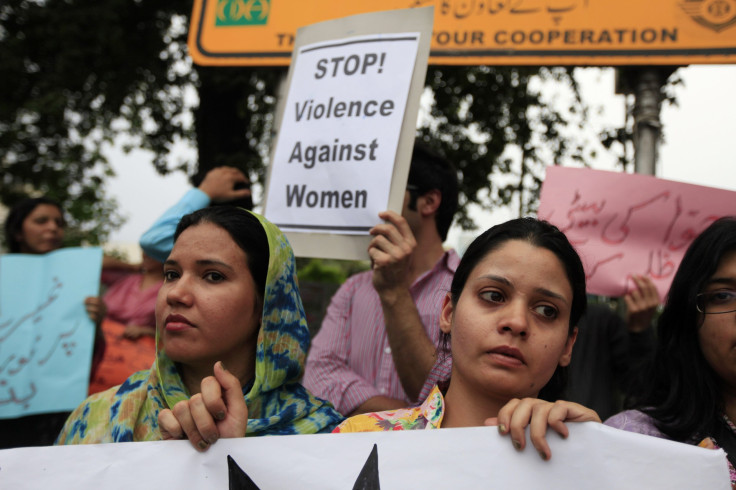Pakistan’s Top Religious Body Denounces Punjab’s Women’s Protection Law As ‘Un-Islamic’

A bill to prevent violence against women, passed last week by lawmakers in Pakistan’s eastern province of Punjab, was on Thursday denounced as “un-Islamic” by a powerful religious body in the country. The Punjab Protection of Women Against Violence Bill, which is yet to be signed by the provincial governor, calls for, among other things, the creation of a toll-free abuse reporting hot line and the establishment of women’s shelters.
“The whole law is wrong,” Muhammad Khan Sherani, who heads the Council of Islamic Ideology (CII) — a constitutional body that advises the government on the compatibility of laws with Islam — reportedly said during a press conference Thursday, citing verses from the Quran to prove his point.
“The summary of the law is, as we understand, that the Muslim families are encouraged to violate the sanctity of matrimonial relations. The law also facilitates women to leave their homes and become part of the workforce,” Sherani said. “We are getting it translated, and then council’s deliberations will be issued over the said bill.”
The landmark bill broadens the definition of violence to include “any offence committed against a woman including abetment of an offense, domestic violence, emotional, psychological and verbal abuse, economic abuse, stalking or cybercrime.” Additionally, it also includes provisions to establish district-level panels to investigate reports of abuse, and mandates the use of GPS bracelets to keep track of offenders.
Incidents of domestic violence are rampant in Pakistan and rights groups have often complained about the government’s inaction to protect women from so-called “honor killings” and torture.
According to statistics compiled by the nonprofit Human Rights Commission of Pakistan, in 2015, nearly 950 cases of sexual violence, 470 instances of honor killings, and 260 cases of domestic violence were reported in the country. The figure, collated using incidents reported by Pakistani media, is believed to be much higher in reality as a vast number of cases remain unreported.
For instance, the Islamabad-based women's rights group Aurat Foundation estimates that over 5,800 cases of violence against women were registered in Punjab alone in 2013.
“Unfortunately, there is no shortage of those who take it upon themselves to denounce any efforts to save women from violence and harassment,” Zohra Yusuf , chairwoman of the Human Rights Commission of Pakistan, said in a statement released last week. “The obligation of the state in the circumstances includes not abandoning whatever little positive change is brought forth, and raise awareness about the importance of the legislative measure in question.”
This is not the first time that the CII has passed a controversial verdict based on its interpretation of the Sharia, or the Islamic law. In January, the council blocked a bill proposing harsher penalties for marrying off girls as young as eight. It also ruled that DNA could not be used as evidence in rape cases, supporting provisions that mandated a rape victim to get four male witnesses to testify in the court.
© Copyright IBTimes 2025. All rights reserved.






















